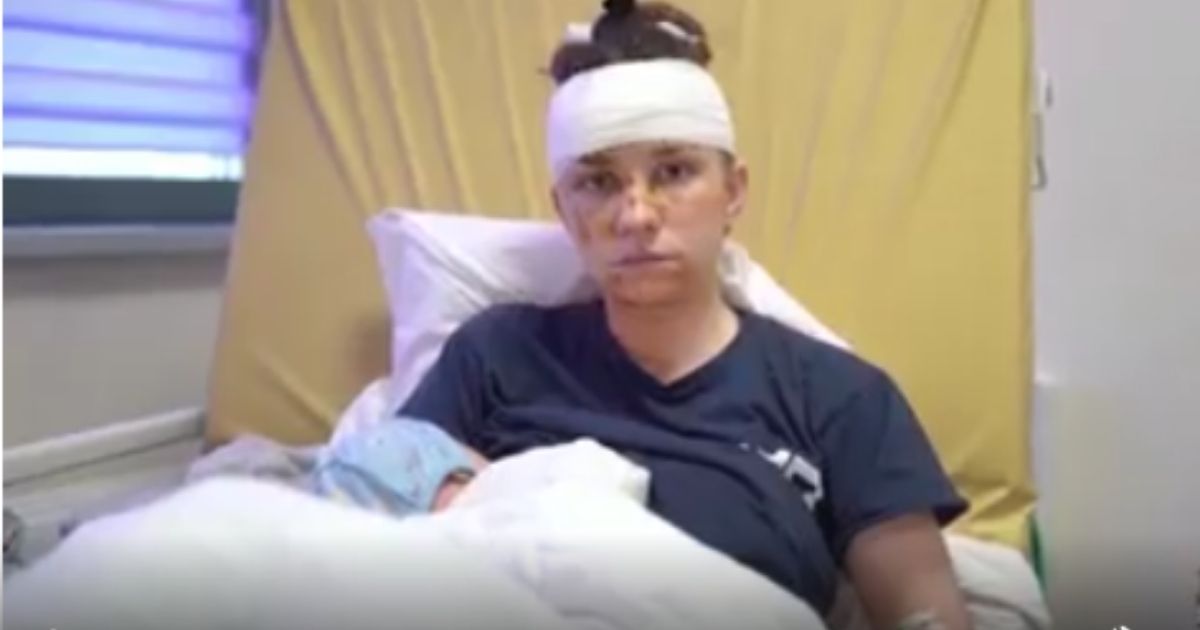There are few things as powerful and moving as a mother’s love and instinct, and one woman from Ukraine has become a rallying example of that power in the face of destruction.
Starting on Feb. 24, Russia began launching missile strikes and hitting residential buildings in Kyiv, Ukraine. On the morning of one such attack, 27-year-old mother Olga had just woken up to feed her six-week-old baby, Victoria.
[firefly_embed]
[/firefly_embed]
Olga had just covered her baby with a blanket when the attack came, sending a spray of glass shrapnel across the mother and baby.
Father Dmytro woke to the sound of the explosions and immediately threw himself to cover his partner and child, too.
“And that’s what kept the baby alive,” Olga later said of the blanket, according to Reuters. “I just got her covered in time. And then Dmytro jumped up and covered us, too.”
When Olga looked down at her child, she was horrified to see the infant covered in blood. She was terrified that her daughter had been injured — but it was all Olga’s blood.
“I was wounded in the head, and blood started flowing,” the mother recalled. “And it all flowed on the baby. I couldn’t understand, I thought it was her blood.”
She started screaming, and it was Dmytro who told her it was her own blood.
“Olga, it’s your blood. It’s not hers,” Dmytro said.
The mother sustained at least 25 cuts across her face and upper torso, but Victoria was miraculously untouched.
While Olga credits the blanket with protecting her child, a doctor at the hospital where the mother is being treated said Olga likely did more than she realizes.
WARNING: The following video contains graphic violence and images that some viewers may find disturbing.
[firefly_embed]
[/firefly_embed]
“She covered the baby, probably, because the baby was completely unharmed,” Anatoliy Tymoshenko said, according to an interview by France 24. “The baby was not hurt.
“But as the mother was feeding her, the mother’s breasts were wounded by the glass. There were about 25 wounds in total.”
Olga has done well under treatment and should be able to go soon — but where they will go remains to be seen. They are grateful to have their lives and are determined to push forward.
“There’s nothing left for us to do but to stay positive,” Dmytro said, “to believe that that was the worst, most horrible thing that could have happened.”
This article appeared originally on The Western Journal.

























 Continue with Google
Continue with Google